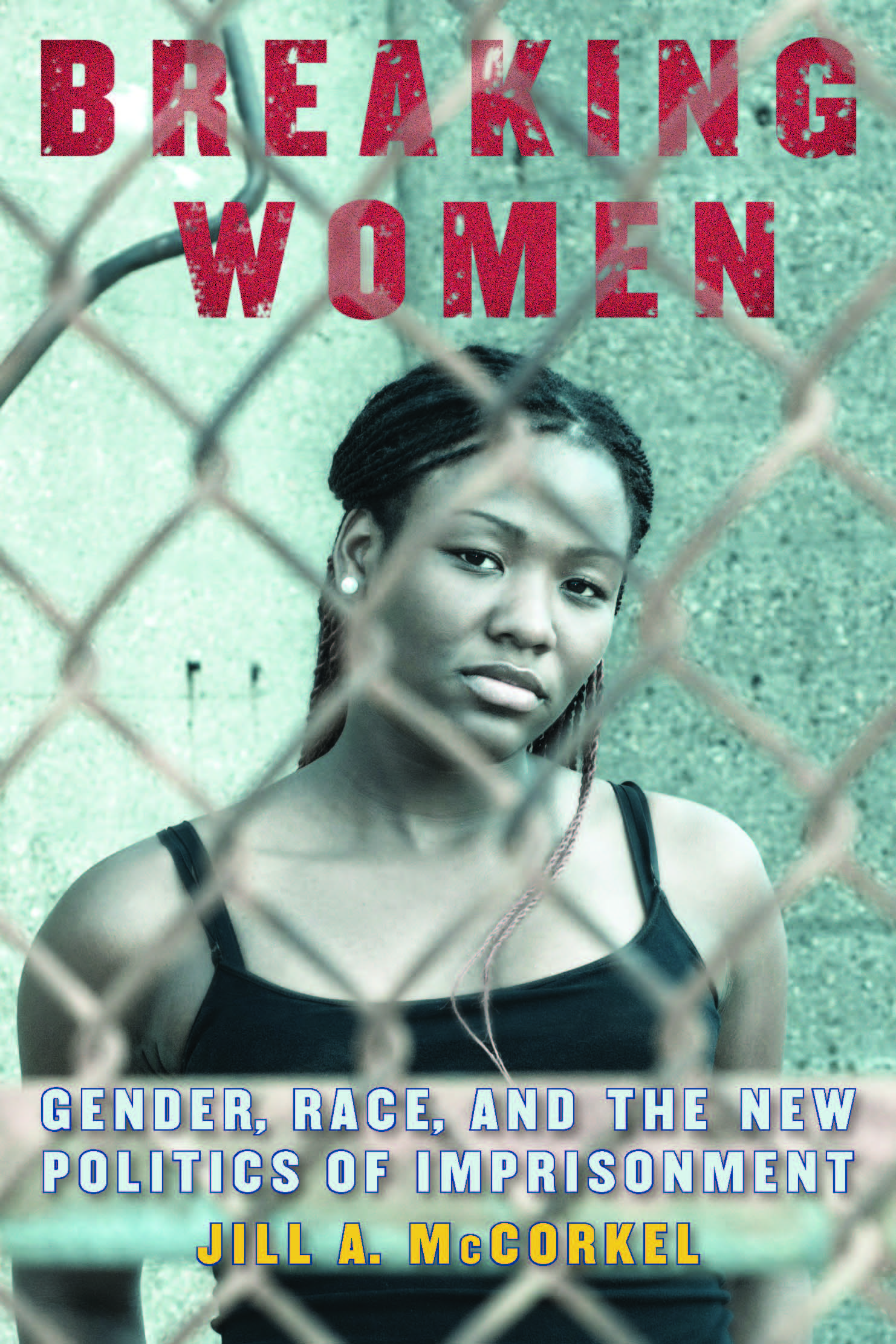Breaking Women:
Gender, Race, and the New Politics of Imprisonment

From the Publisher…
“Since the 1980s, when the War on Drugs kicked into high gear and prison populations soared, the increase in women’s rate of incarceration has steadily outpaced that of men. As a result, women’s prisons in the US have suffered perhaps the most drastically from overcrowding and recurrent budget crises. In this book, Jill A. McCorkel draws upon four years of ethnographic research in a major US women’s prison to uncover why tougher drug laws have so greatly affected those incarcerated there, and how the very nature of punishment has been deeply altered as a result. A fascinating and yet sobering study, Breaking Women foregrounds the sexist and racist assumptions behind tough-on-crime policies while offering a vivid account of how the contemporary prison system impacts individual lives.”
Honors & Awards
Distinguished Scholar Award, Division of Feminist Criminology, American Society of Criminology
C. Wright Mills Distinguished Book Award, 2013 Finalist, Society for the Study of Social Problems
Praise
“Jill McCorkel’s book is a wonderful testimony to the power of ethnography to untangle and illuminate the complexities of otherwise hard-to-access social processes. And, despite chilling descriptions of PHW ‘confrontations’, Breaking Women is ultimately satisfying to read because of McCorkel’s stimulating grasp of the social, political, economic, philosophical and human rights issues raised by prison regimes…. I strongly recommend Breaking Women to anyone with an interest in ethnography. To everyone interested in justice, human rights, and the politics of imprisonment Breaking Women is recommended as essential reading.” British Journal of Criminology
“McCorkel weaves together a harrowing story at the intersection of race, gender, punishment, and addiction. The end result is a richly textured analysis that highlights how power operates over black women in prison through ‘gendered governance’ that takes ‘the disordered self’ as its object of intense control.” Theoretical Criminology
“… Breaking Women is a must read.” Punishment & Society
“Breaking Women is a remarkable achievement. Jill McCorkel’s long-awaited account raises critical questions about the social and psychological consequences of the current trend toward punitive, for-profit ‘habilitation.’ Meticulously researched and beautifully written, this is prison ethnography at its best.” Lorna Rhodes, author of Total Confinement: Madness and Reason in a Maximum Security Prison
“This is the book so many sociologists of punishment, law, and gender have been waiting for. Beautifully written and thoughtfully argued, Breaking Women takes readers inside the US penal system to analyze how its overall structure and concrete practices changed in the era of mass incarceration. Through a captivating and absorbing ethnographic account of a prison drug treatment program for women, the book traces how a particularly gendered mode of punishment emerged to discipline and humiliate women.” Lynne Haney, New York University
“It has been observed that the eclipse of the prison ethnography corresponded almost perfectly with the rise of mass incarceration. This hugely important book shows precisely why we need to reverse both trends. The women’s stories that are so vividly captured in this work demonstrate in painful detail that efforts to ‘break’ human beings, even if in the name of reform, only succeed at creating more victims.” Shadd Maruna, President, American Society of Criminology
“One of the many strengths of Breaking Women is its effective use of Foucault as well as Malcolm Feeley and Jonathan Simon. McCorkel compellingly argues that the program’s techniques were a powerful way to control ‘unruly’ groups. Instead of shackling women’s bodies, however, control was achieved from within–through forced self-redefinition.” American Journal of Sociology